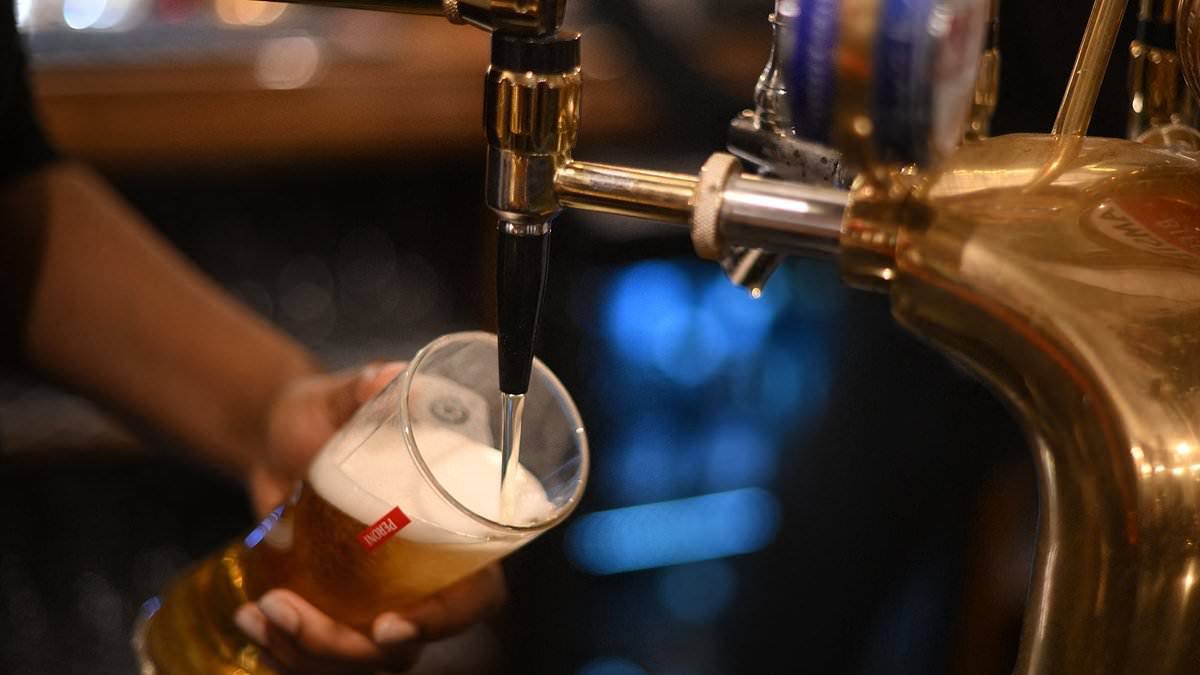The number of pubs disappearing from communities in England and Wales has risen by a third in the first months of 2024 amid pressure on punters’ budgets, figures show.
Official government statistics show that 239 pubs were demolished or converted to other uses in the three months to March 31.
It means around 80 pubs will close each month, representing a 56 per cent increase from the closure of 51 pubs per month in the first quarter of 2023.
Pub sector bosses have said the data reflects the impact of high energy and food costs, tighter consumer spending and a significant tax burden on hospitality businesses.
Click here to change the format of this module
The data, collected by commercial property specialists Altus Group, showed that the total number of pubs in England and Wales, including those vacant and rented, fell to 39,162 at the end of March.
Compared to 39,401 pubs at the end of 2023.
The North West region of England lost 35 pubs in the first quarter of 2024, the most of any region.
A growing number of pubs have disappeared from the communities they once served after being demolished or converted for use as homes, offices and nurseries.
A total of 472 pubs in England and Wales have left the community for good in the past year.
On Friday, pub and brewery group bosses called on the main political parties to immediately cut beer duty and demanded business rates reforms ahead of the July 4 general election.
The Conservatives, Labor and Liberal Democrats have all promised to shake up business rates to reduce the burden on shops, pubs and restaurants.
Alex Probyn, property tax director at Altus Group, said: ‘The fundamental issue for business is not necessarily the system, but how much tax it actually generates.
‘It is a tax that has risen by 49 per cent over the past fourteen years, with businesses, across all sectors, now paying £9.48 billion more per year than in 2010.
‘While the commitments to permanently reduce high street bills are welcome, the business community had hoped for more detail and a timetable to achieve this.’
Emma McClarkin, CEO of the British Beer and Pub Association (BBPA), said: ‘The pub closure figures for the first quarter of this year reflect the continued high cost of doing business, particularly with factors such as high energy costs and Food and beverage inflation remains higher than topline inflation.
‘Trading conditions have also not improved due to the varied weather we have experienced, and furthermore, with £1 of every £3 spent in pubs going straight to tax authorities, the tax burden facing the beer and pub sector gets grapple is another cost component that puts pressure on margins.
‘Last week saw the release of the various party manifestos, with the parties making several pledges to reform business rates, which combined with previous pledges to recognize the importance of the sector to communities and the wider economy.
“It is for this reason why it will be essential that the next government puts in place a fiscal and regulatory framework that ensures the sector does not survive, but thrives.”
